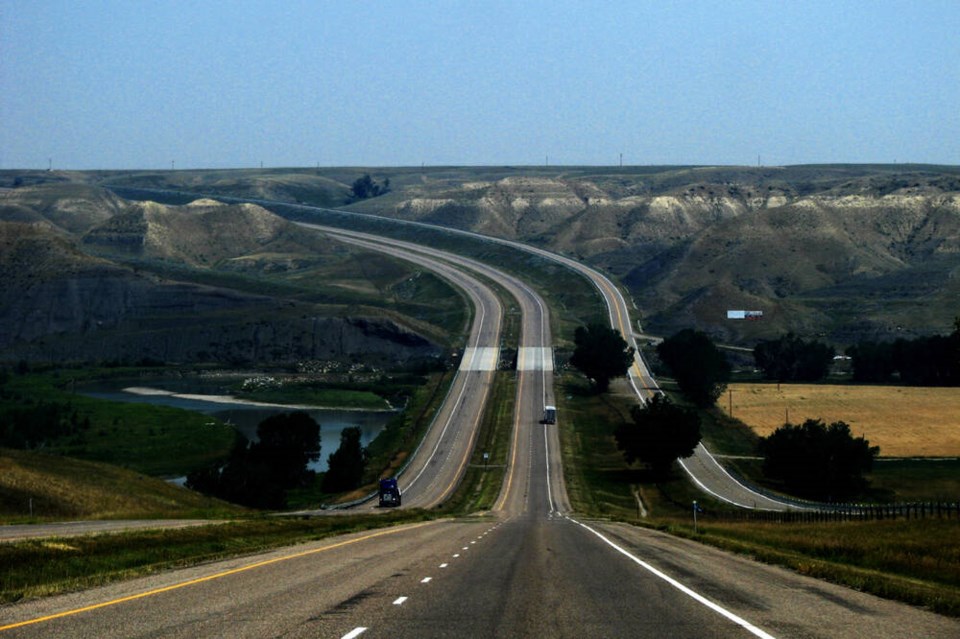In Canada, gasoline prices are determined by a complex combination of economic and political factors, such as how much profit international oil companies would like to make

Summer is finally here, and with the warmer weather and kids out of school, a fun vacation on the open road beckons!
Before you pack the trunk, remember to check the tire pressure and fill up the tank with WAIT HOW MUCH DOES GAS COST?!?!
Yes, it’s the weekend, when gas prices go up just because they can. Don’t worry! Gas prices will come down on Monday when you don’t need any.
This is a regular part of summer called “being Exxon’d” or “bend-over economics,” and we will keep on taking it because the price of gas is what economists call “inelastic.”
That means whatever gasoline costs, we keep buying it because we need it.
We simply have no alternative for getting the kids to the Okanagan really fast while releasing dangerous levels of carbon dioxide, methane and nitrous oxide into the atmosphere.
Nope, no alternative. Nooooooo alternatives exist. What I’m saying is there are no alternatives to gasoline in this universe.
In Canada, gasoline prices are determined by a complex combination of economic and political factors, such as how much profit international oil companies would like to make.
I’m just kidding! The factors include crude oil prices, taxes, refining margins and marketing margins. To make it easy to remember, all of these factors boil down to how much profit international oil companies would like to make.
The price of crude oil, the raw material for gasoline, is the major driver of gasoline prices, and it fluctuates all the time.
You’re probably wondering why it fluctuates all the time? This is because, uh … fluctuations happen … checking my notes — ah, here it is: supply and demand! Currency exchange rates! Geopolitical events! The weather! Other stuff!
I’m sure we can all agree that these are good reasons that make total sense if you are willing to earn an advanced degree in Keynesian economics and also own stock in an international oil company. But what exactly is crude oil?
Crude oil is a totally natural cancer-causing resource found in vast underground reservoirs, then pumped up to the surface where we can burn it for its excellent global-warming qualities.
This energy-rich liquid is made of hydrocarbon molecules, which we call “fossil fuel” because it was formed a long time ago from the remains of ancient organisms that did not make it into Noah’s ark before it clouded over.
Crude oil is the raw material refined into various petroleum products like gasoline, diesel and Johnny Depp’s hair in all those Disney pirate movies.
Almost 80% of Canada’s crude oil is refined in the U.S. so we can benefit from the well-known Keynesian economic principle of “exporting the jobs, importing the cost.”
Of course, a big part of the price at the pump is attributed to taxes, including federal excise taxes, provincial taxes and municipal taxes, which are then used for running the government and bettering our society on paper.
These taxes vary significantly from province to province. For example, gas taxes are lowest in Alberta because its leaders do not really care about the environment or other people.
One of the big taxes is — was — British Columbia’s recently cancelled “carbon tax,” a key part of B.C.’s climate action plan designed to reduce greenhouse-gas emissions through a tax initially designed to incentivize the use of lower-emission fuels and technologies, which resulted in additional cost added on fossil fuels at the point of retail consumption as part of a revenue-neutral policy put in place 2008 to offset other taxes.
Whew! Hang on, I need to rest a minute. I’m exhausted after typing all that.
I would now like to explain it in common terms we all can understand. I would like to, but I cannot, because the one thing I for sure understand about the carbon tax is that I do not understand the carbon tax. I don’t think anybody understands the carbon tax, which may be why it was cancelled.
Adding to the cost of gasoline are the refiners who add a margin to their production costs, and the retailers who add a markup for marketing, transportation and the operation of gas stations.
Finally, we have competition between gas stations in a given area, which we pretend can affect pricing because, even though they all equally like profit, price collusion is against the law! If there is one thing big oil-producing nations and international oil companies care about, it is the law.
Let me conclude by saying that I, for one, am glad we are once again pedal-to-the-metal with the petroleum economy because who doesn’t like hotter weather, am I right?
Also, what else can we do? We simply do not have viable alternative clean technologies like solar power, wind energy, geothermal energy, hydropower, tidal energy and biofuels.
The price of gasoline has nothing to do with profit from the status quo, it’s because nobody has even heard of those imaginary things! STOP THINKING ABOUT ALTERNATIVE CLEAN TECHNOLOGIES, YOU DIRTY HIPPIES!
Keep driving. The kids are getting restless, and you have a vacation to get to in the Okanagan, no matter what gasoline costs us all forever.